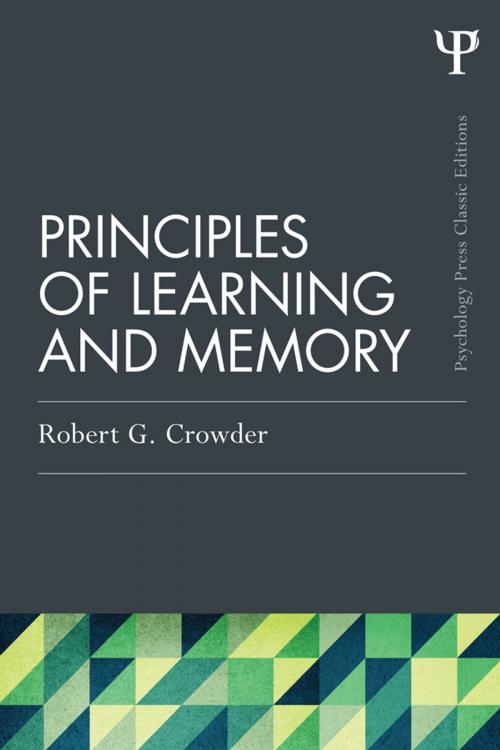Principles of Learning and Memory
Classic Edition
Nonfiction, Health & Well Being, Psychology, Cognitive Psychology| Author: | Robert G. Crowder | ISBN: | 9781317599845 |
| Publisher: | Taylor and Francis | Publication: | November 20, 2014 |
| Imprint: | Psychology Press | Language: | English |
| Author: | Robert G. Crowder |
| ISBN: | 9781317599845 |
| Publisher: | Taylor and Francis |
| Publication: | November 20, 2014 |
| Imprint: | Psychology Press |
| Language: | English |
In this landmark volume from 1976, Robert Crowder presents an organized review of the concepts that guide the study of learning and memory.
The basic organization of the book is theoretical, rather than historical or methodological, and there are four broad sections. The first is on coding in memory, and the relations between memory and vision, audition and speech. The second section focuses on short-term memory. The third is loosely organized around the topic of learning. The final section includes chapters that focus on the process of retrieval, with special attention to recognition and to serial organization.
Crowder presumes no prior knowledge of the subject matter on the part of the reader; technical terms are kept to a minimum, and he makes every effort to introduce them carefully when they first occur. It is suitable for advanced undergraduate and graduate courses.
In this landmark volume from 1976, Robert Crowder presents an organized review of the concepts that guide the study of learning and memory.
The basic organization of the book is theoretical, rather than historical or methodological, and there are four broad sections. The first is on coding in memory, and the relations between memory and vision, audition and speech. The second section focuses on short-term memory. The third is loosely organized around the topic of learning. The final section includes chapters that focus on the process of retrieval, with special attention to recognition and to serial organization.
Crowder presumes no prior knowledge of the subject matter on the part of the reader; technical terms are kept to a minimum, and he makes every effort to introduce them carefully when they first occur. It is suitable for advanced undergraduate and graduate courses.















